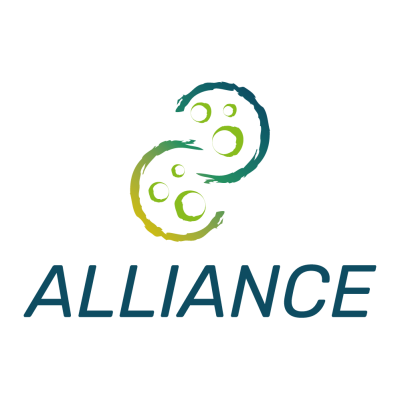
ALLIANCE
EUROPEAN MICROALGAE ALLIANCE (ALLIANCE): INNOVATIVE, SAFE, AND SUSTAINABLE MULTIPRODUCT BIOREFINERIES FOR A BLUE BIOBASED ECONOMY

EUROPEAN MICROALGAE ALLIANCE (ALLIANCE): INNOVATIVE, SAFE, AND SUSTAINABLE MULTIPRODUCT BIOREFINERIES FOR A BLUE BIOBASED ECONOMY
The European algae industry has grown significantly over recent decades, primarily serving niche high-value markets such as food supplements and nutraceuticals. However, with the increasing demand for alternative food ingredients and bio-based chemicals—driven by the EU’s push towards a bio-based economy—the market for microalgae-based products is expected to expand. Despite this potential, high production costs and limited market volume remain key barriers to scaling a sustainable, profitable, and circular algae industry.
ALLIANCE aims to overcome these challenges by redefining the microalgae value chain through a multi-product biorefinery approach, expanding the adoption of microalgae-based products in the EU market, improving their cost-effectiveness and sustainability. The goal is to establish algae-based ingredients through multi-product biorefineries for the food, aquafeed, cellular agriculture, and agriculture sectors.
The project aims to demonstrate scalable and cost-competitive biorefinery processes using solvent-free extraction and wet biomass (bypassing dewatering) to reduce nutrient use, recirculate water, and prioritise renewable energy. The project will integrate processes from four algae pipelines into 15 near-zero waste product lines. Additionally, it will work with diverse stakeholders and policymakers to drive market penetration and address regulatory gaps, fostering the growth of microalgae-based products in Europe.